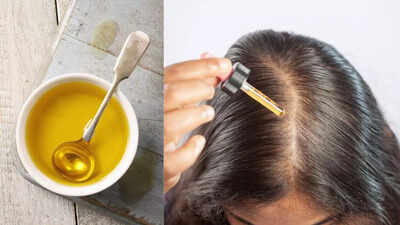Why you should warm oil before applying: How it improves absorption, shine, and skin hydration |

When it comes to self-care, few rituals are as soothing and rejuvenating as a warm oil massage. Whether applied to the hair or skin, oiling has been a cherished beauty and wellness practice for centuries. Yet, one simple step often overlooked can make a significant difference, gently warming the oil before application. Warm oil penetrates more effectively, improves circulation, and enhances the absorption of essential nutrients. It not only promotes healthier hair growth and radiant skin but also provides deep relaxation and stress relief. Understanding the benefits of using warm oil can transform a simple routine into a powerful, restorative self-care experience.
Benefits of warming oil before applying it to hair
Warming oil slightly, not to the point of being hot, helps activate its natural properties and makes it more compatible with the body’s temperature. When oil is warm, it penetrates deeper into the scalp and skin layers, delivering nutrients more effectively. The gentle heat also relaxes muscles, stimulates blood flow, and opens pores, allowing the oil to work its magic more efficiently. In contrast, applying cold oil can tighten pores and reduce absorption, limiting its nourishing potential.1. Enhances absorptionWarm oil spreads more easily and penetrates better into the skin and scalp. This ensures that essential fatty acids, vitamins, and antioxidants from the oil reach deeper tissues, improving nourishment and hydration.2. Boosts blood circulationThe warmth from the oil massage helps dilate blood vessels, increasing circulation to the scalp and skin. Better circulation means more oxygen and nutrients reach the hair follicles and skin cells, promoting growth and vitality.3. Relieves stress and promotes relaxationThe soothing warmth of oiling has a calming effect on the nervous system. A gentle warm oil massage can help reduce tension, ease headaches, and improve sleep quality, making it not just a beauty ritual but also a therapeutic one.4. Strengthens hair roots and prevents breakageWhen used on the scalp, warm oil softens the roots and strengthens hair strands from within. It helps reduce dryness, flakiness, and split ends, leaving hair shinier, smoother, and less prone to breakage.5. Soothes dry and itchy skinFor dry or sensitive skin, applying warm oil can help lock in moisture and relieve irritation. The heat allows the oil to sink in faster, restoring elasticity and reducing roughness or itchiness, especially during colder months.6. Improves scalp healthA warm oil massage helps loosen dead skin cells, dandruff, and product build-up. This not only keeps the scalp clean but also creates a healthy environment for new hair growth.7. Amplifies the benefits of the oil usedWhether you use coconut, almond, olive, or mustard oil, gentle heating can enhance its natural compounds and aroma, making it more effective and pleasant to use.
How to warm oil the right way
To safely warm oil, pour a small amount into a bowl and place it in a larger bowl filled with hot water for a few minutes. Avoid heating the oil directly over a flame or in a microwave, as this can destroy nutrients and make it too hot to apply. The ideal temperature should feel comfortably warm to the touch, never scalding.
Best oils to warm before using
- Coconut oil: Deeply moisturises and strengthens hair, ideal for all hair types.
- Almond oil: Rich in vitamin E; nourishes dry scalp and skin.
- Olive oil: Hydrates and protects hair and skin with antioxidants.
- Mustard oil: Stimulates circulation and promotes thick hair growth.
- Castor oil: Encourages hair regrowth and adds shine when mixed with lighter oils.
When and how often to apply warm oil
For best results, use warm oil once or twice a week. Gently massage it into the scalp using circular motions for 10-15 minutes to stimulate roots. Leave it on for at least 30 minutes before washing. For deep nourishment, leave the oil overnight and rinse in the morning with a mild shampoo.Disclaimer: This article is for informational purposes only and should not be considered medical advice. Please consult a healthcare professional before making any changes to your diet, medication, or lifestyle.






